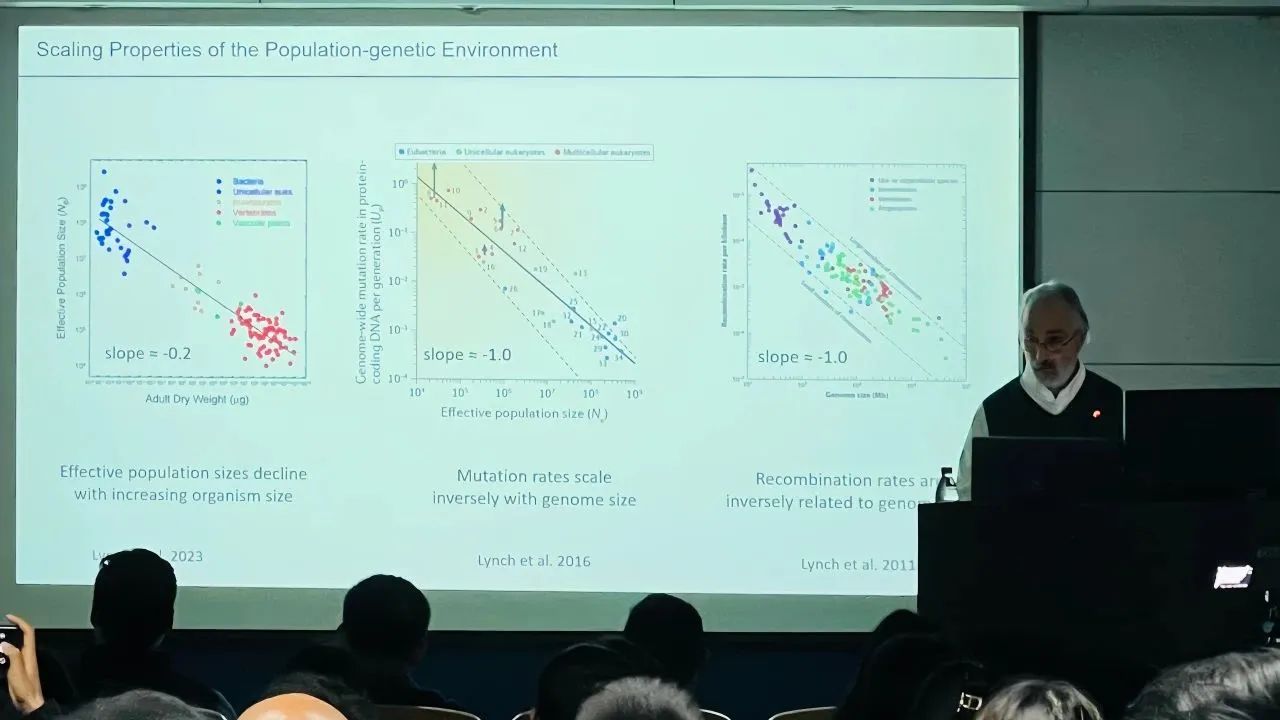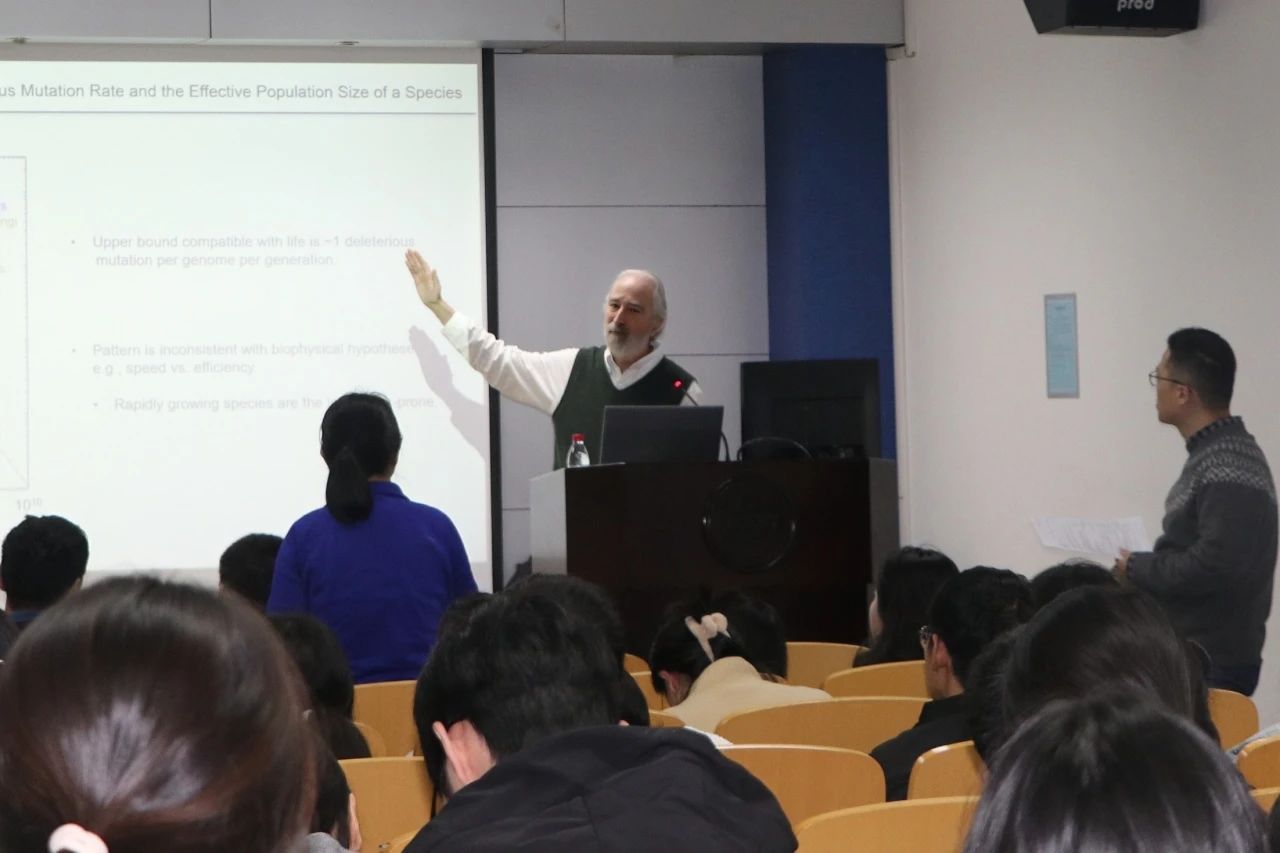11 / 29 / 2023
16:00 ~ 17:30
245, Building of Life Sciences
The whole school
Michael Lynch:Drift, Mutation, Bioenergetics, and the Origin of Cell-biological Features
Back to ListOn November 29, 2023, Professor Michael Lynch of the School of Life Sciences at Arizona State University gave a wonderful lecture on evolutionary biology. Professor Qi Zhou from the Center for Evolutionary & Organismal Biology chaired the report.

Michael Lynch is a professor in the School of Life Sciences and director of the Biodesign Center for Mechanisms of Evolution at Arizona State University. Professor Lynch has served as President of the Genetics Society of America, the Society for Molecular Biology and Evolution, the Society for the Study of Evolution, and the American Genetic Association. He is a member of the U.S. National Academy of Sciences and a fellow of the American Academy of Arts and Sciences.
His research is focused on mechanisms of evolution at the gene, genomic, cellular, and phenotypic levels, with special attention being given to the roles of mutation, random genetic drift, and recombination. This work relies on the integration of theory development and computational analysis with empirical work on several model systems, including the microcrustacean Daphnia, the ciliate Paramecium, and numerous microbial species. The overarching mission of the new Biodesign Center for Mechanisms of Evolution is to understand the primary forces of evolution to empower all areas of the life sciences and solve key practical and urgent societal issues such as our understanding of mutation and disease.
The topic of Professor Michael Lynch's presentation is "Drift, Mutation, Bioenergetics, and the Origin of Cell-biological Features". For over a century, most biologists have been convinced that all aspects of biodiversity have been driven entirely by natural selection, with stochastic forces and mutation bias playing a minimal role. However, this is not the case at the molecular and cellular levels, where diverse traits scale with cell/organism size in ways that cannot be explained by optimization and/or speed vs. efficiency arguments. These include aspects of gene/genome architecture, intracellular error rates, the multimeric nature of proteins, swimming efficiencies, and maximum growth rates.
Although natural selection may be the most powerful force in the biological world, it is not all-powerful, and the power of random genetic drift ultimately dictates what selection can and cannot accomplish. Many prokaryotes may reside in population-genetic environments where the limits to selection are indeed dictated only by the constraints of cell biology. However, in the eukaryotic domain, larger organism size is typically associated with a reduction in effective population size (Ne), enabling the accumulation of very mildly deleterious mutations, which in turn induces coevolutionary side effects leading to more complex and less efficient phenotypes.
This general conclusion is embodied in the drift-barrier hypothesis, which postulates that traits under persistent directional selection become stalled when further increments in improvement are thwarted by the power of random genetic drift. Integration of biology’s three engines of quantitative theory – population genetics, biophysics, and biochemistry, combined with observations from cellular bioenergetics, is providing a platform for the emergence of a formal field of evolutionary cell biology.

After an engaging lecture by Professor Michael Lynch, the venue erupted into lively discussions. Among the audience were young researchers deeply intrigued by the hypothesis of genetic drift barriers, posing several questions about genetic drift and natural selection. Professor Lynch patiently and comprehensively addressed each inquiry, his responses resonating with depth and breadth, eliciting nods and admiration from the audience. One professor in attendance commented, "This is the most dense talk that I have listened to for the past several years." The atmosphere was vibrant and amicable, with sparks of academic brilliance constantly igniting through these exchanges.









